Providing proper nutrition may be the single most important thing you can do for your pet. Many of the most common illnesses in dogs and cats are directly connected to diet, including obesity, allergies, diabetes, and certain cancers.
With so much riding on the foods our pets eat, iHeartDogs conducted a survey of approximately 1,700 of our readers to find out just how much faith they have in the diets they feed their beloved companions. The results were dismal, but not all that surprising.
When it came to pet food safety, more than half of the readers who responded to our survey said that they are “Not Confident” in the ability of major market pet food brands to deliver quality, safe pet food products for their dogs. According to DogFoodAdvisor.com, there have been 14 pet food recalls so far in 2017. Some even involved contamination with the deadly euthanasia drug, Pentobarbital.
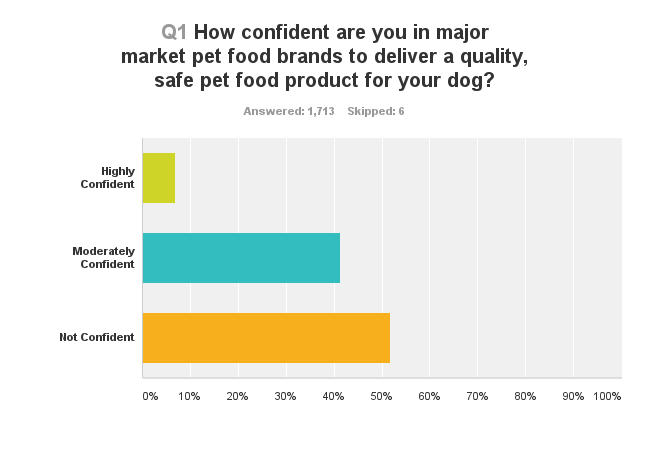
Nearly 85% of the consumers we polled admitted to feeling that pet food manufacturers do a poor job of educating their customers about nutrition and pet health. These subjects are complex enough, but the faith of consumers has been further tested by news of evasive and purposely misleading labeling by some companies.
Last year, litigation began against two major manufacturers for placing the phrase “Made in the USA” on their products when many of the ingredients were actually sourced outside the US. Other companies have been accused of using meaningless terms like “Gourmet” and “Premium” to sell more food or justify higher prices.
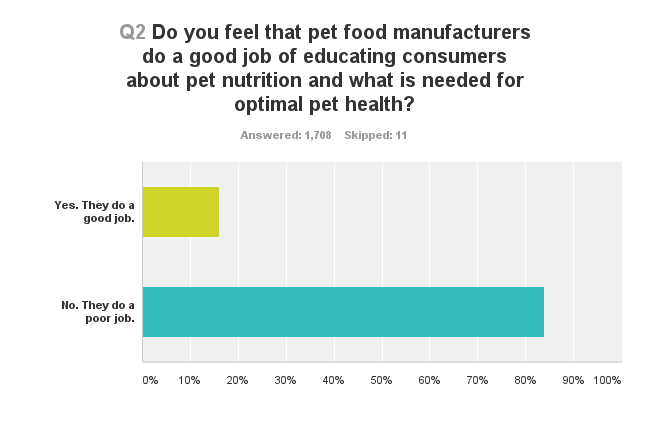
The majority of consumers (55%) reported purchasing their pet food from pet supply stores which offer a wide selection of diets to fit many different needs and price ranges. Unfortunately, all those options can be confusing, making it difficult for pet owners to make the best choices.
An additional 25% reported relying on grocery stores and discount shops for their pet food purchases. Despite their affordable price points, these establishments often carry lower quality foods that tend to be higher in fats, sugars, artificial ingredients and preservatives.
Only about 10% of the survey participants purchase their pet food from a licensed veterinarian – an understandably small figure considering the substantially higher cost of veterinary diets. A pending class action lawsuit against the top three veterinary prescription diet brands alleges that they have engaged in price fixing. It further accuses these once-trusted companies of misrepresenting the performance of their products by making them available through prescription only.
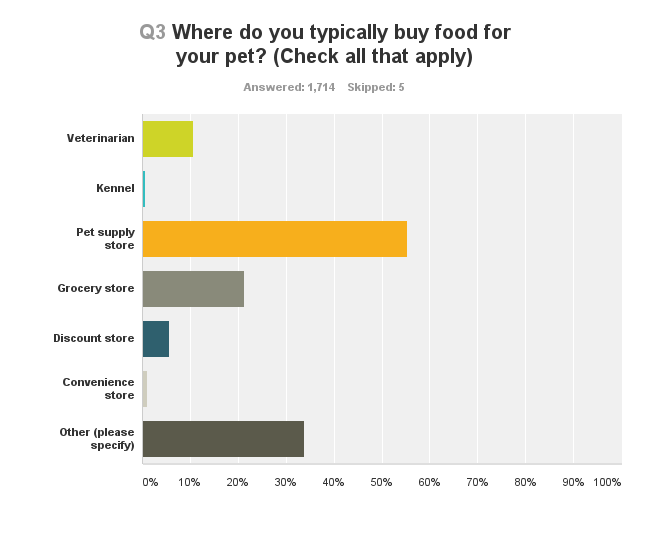
When it comes to questions and advice on nutrition, more than 40% of the 1,700 readers who responded said that they turn to their vet. An additional 40% sought information on Google and trusted websites.
Only about 5% reported seeking advice directly from the pet food companies. This is likely due – at least in part – to the number of confidence-crushing recalls and reports of misrepresentation of ingredients.
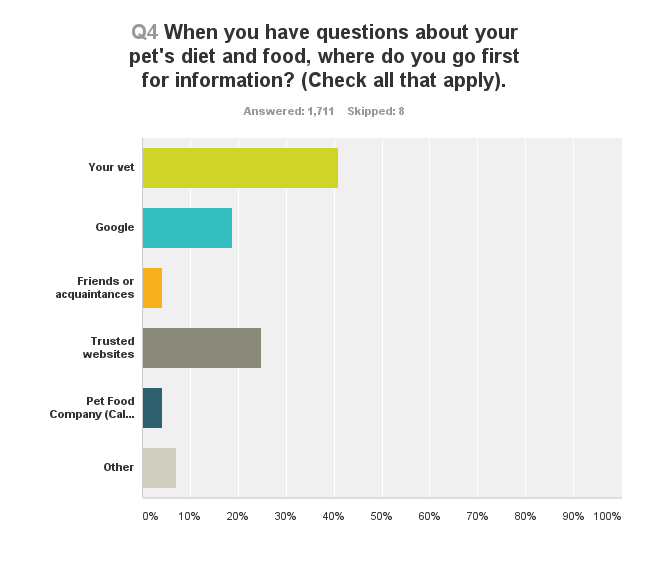
The final survey question sought to gauge our readers’ confidence in their own ability to make choices about their pets’ diets. Almost all of our survey participants reported that they were at least “Slightly Confident” in their selections. Less than 5% stated that they were “Not Confident At All.”
Consumers have more access to inside information than ever before thanks to the amount of coverage and attention that recent pet food scandals have drawn. Loving pet parents seem to be empowering themselves more and more on the subject of nutrition in order to become stronger advocates for their dogs and cats.
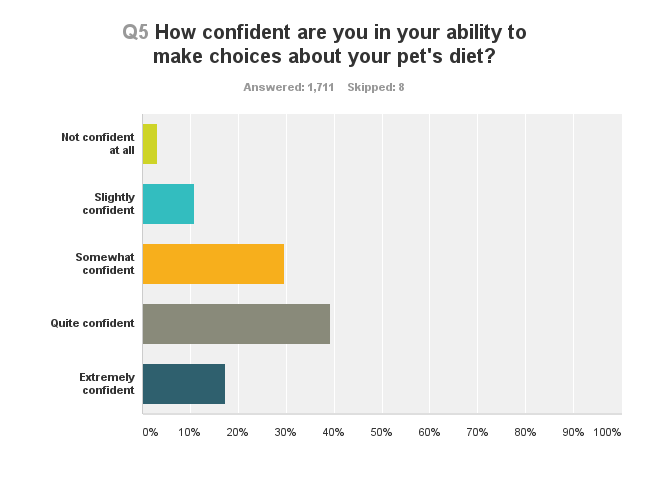
The American Pet Products Association estimates that US pet owners will spend $29.69 billion on pet food in 2017. With consumers investing such a significant amount of money in their pets’ nutrition, they deserve to feel safe, confident and well-informed about their decisions.
What changes do you think the pet food industry needs to make in order to improve their products and the satisfaction of their customers?
